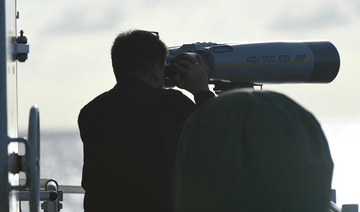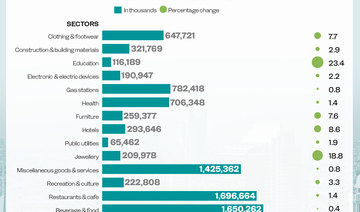Electric vehicles are key to a cleaner, more sustainable world

https://arab.news/9e9dq
On a recent visit to the Swiss canton of Valais, a region synonymous with natural beauty and Alpine serenity, I noticed a quiet revolution was underway.
Here, in the shadow of snow-capped peaks, the Energypolis Campus research institute is developing an innovation ecosystem that brings together the skills of many players in the fields of energy, health, and environment.
One of these stakeholders is H55, a company that specializes in developing electric propulsion systems for the aviation industry.
H55 is a technological spin-off from the Solar Impulse project, which was the first entirely solar-powered electric airplane to fly around the world.
One of H55’s notable projects is a two-seater, fully electric pilot training aircraft, which is expected to receive type certification in early 2025.
The company’s mission is to enable the aviation industry to reach net zero emissions by developing certified electric propulsion systems that are clean, quiet, safe and affordable.
While Valais and H55 provide a glimpse into the potential of electric aviation, the story of electric vehicles is much larger, encompassing a diverse array of vehicles that are steadily transforming the mobility landscape.
Electric buses are becoming a common sight in cities around the world, offering a cleaner, quieter alternative to traditional diesel-powered buses.
The freight industry, traditionally reliant on heavy-duty trucks powered by diesel engines, is also witnessing a shift towards electrification.
Companies are investing in electric trucks to transport goods over short and medium distances, driven by the dual incentives of reducing carbon footprints and cutting fuel costs.
Electric motorcycles and scooters offer an efficient mode of personal transport, especially in congested urban areas.
Moreover, electric boats are making waves in the marine industry, offering a silent, zero-emission alternative to traditional vessels and paving the way for a sustainable future on the water.
Innovations in battery technology and charging infrastructure are making this transition more feasible than ever before.
Khaled Abou Zahr
And while we see EV cars taking over the roads, we are all waiting impatiently for electric vertical take-off and landing aircraft to appear.
This is an innovative class of aerial vehicles that operate on electric power and are designed to take off and land vertically, heralding a future where they could become a common sight in urban skies.
This new era is a transformation empowered by a software and space revolution, characterized by autonomous vehicles optimizing routes with artificial intelligence.
Innovations in battery technology and charging infrastructure are making this transition more feasible than ever before. If the electrification of these vehicles is a critical step towards decarbonization, one must have a broader assessment.
Indeed, the environmental impact of EVs is intrinsically linked to the entire supply chain — from the mining of materials for batteries to the generation of the electricity that powers them and the disposal of used equipment.
Moreover, to truly realize their potential, it is essential to ensure the energy used to charge EVs comes from clean sources and that the materials are sourced responsibly.
As we look to the future, the integration of EVs across all modes of transport holds the promise of a cleaner, more sustainable world.
Yet we should also be cautious in how we move towards it. If the road, the sea, and the sky ahead are indeed electric, we must make sure it offers the same capacity of mobility that has allowed economies to flourish.
The exciting part is we are noticing that innovation in mobility, sustainability, and health are converging.
With a comprehensive approach that considers the entire lifecycle of EVs, we can ensure this vision becomes a reality while not breaking our economies, for the sake of our planet and future generations.
• Khaled Abou Zahr is the founder of SpaceQuest Ventures, a space-focused investment platform. He is CEO of EurabiaMedia and editor of Al-Watan Al-Arabi.





























